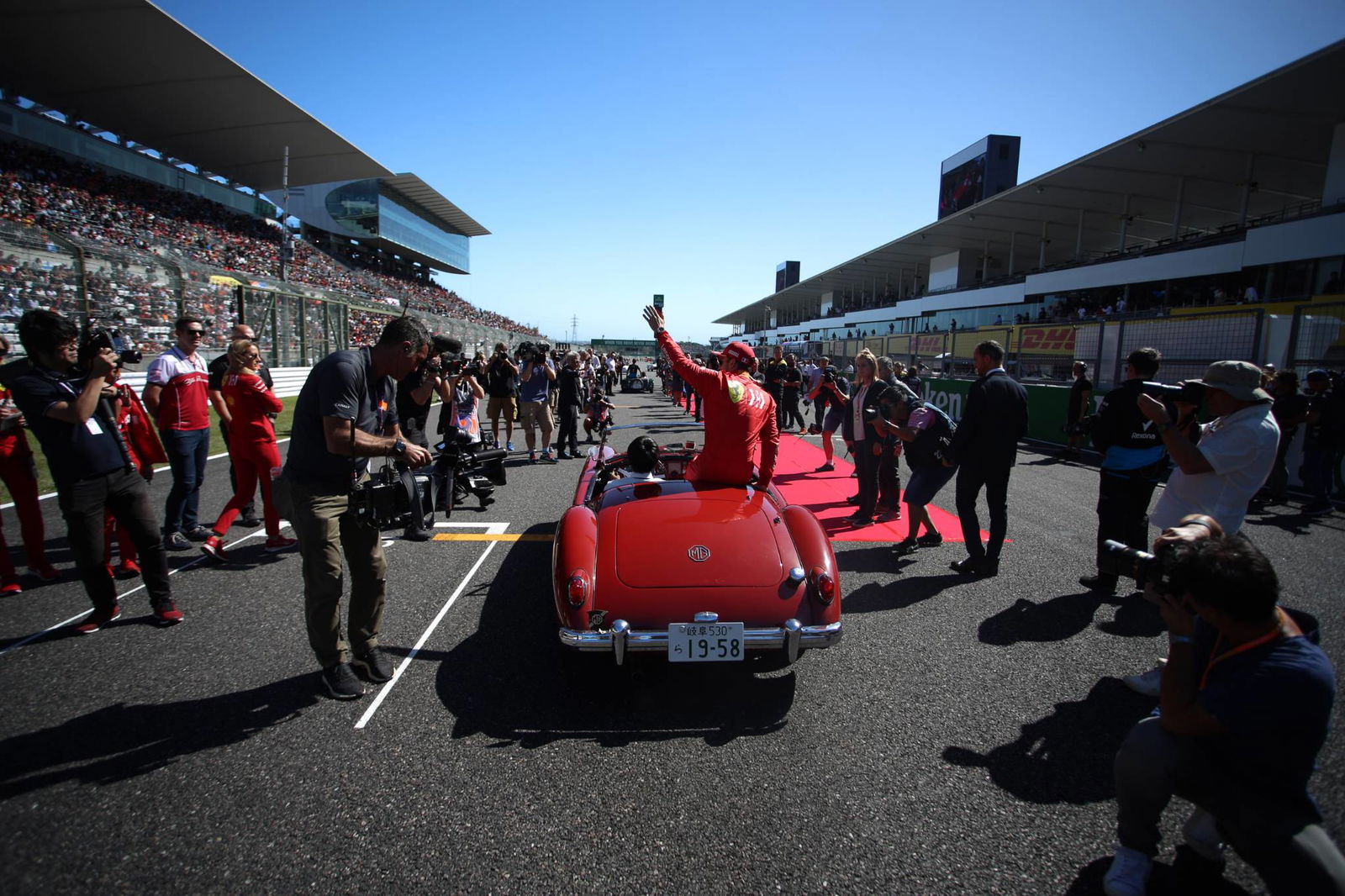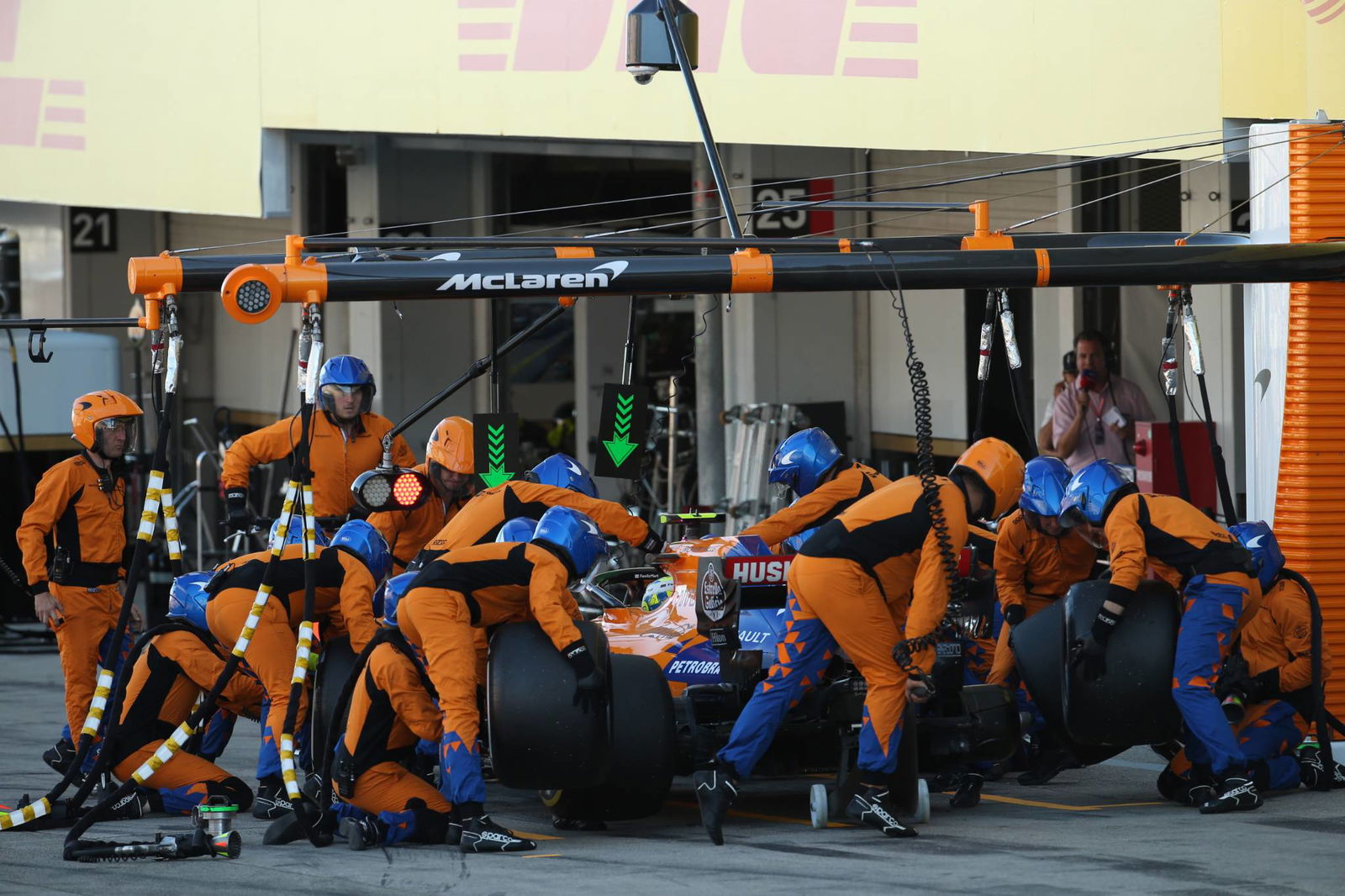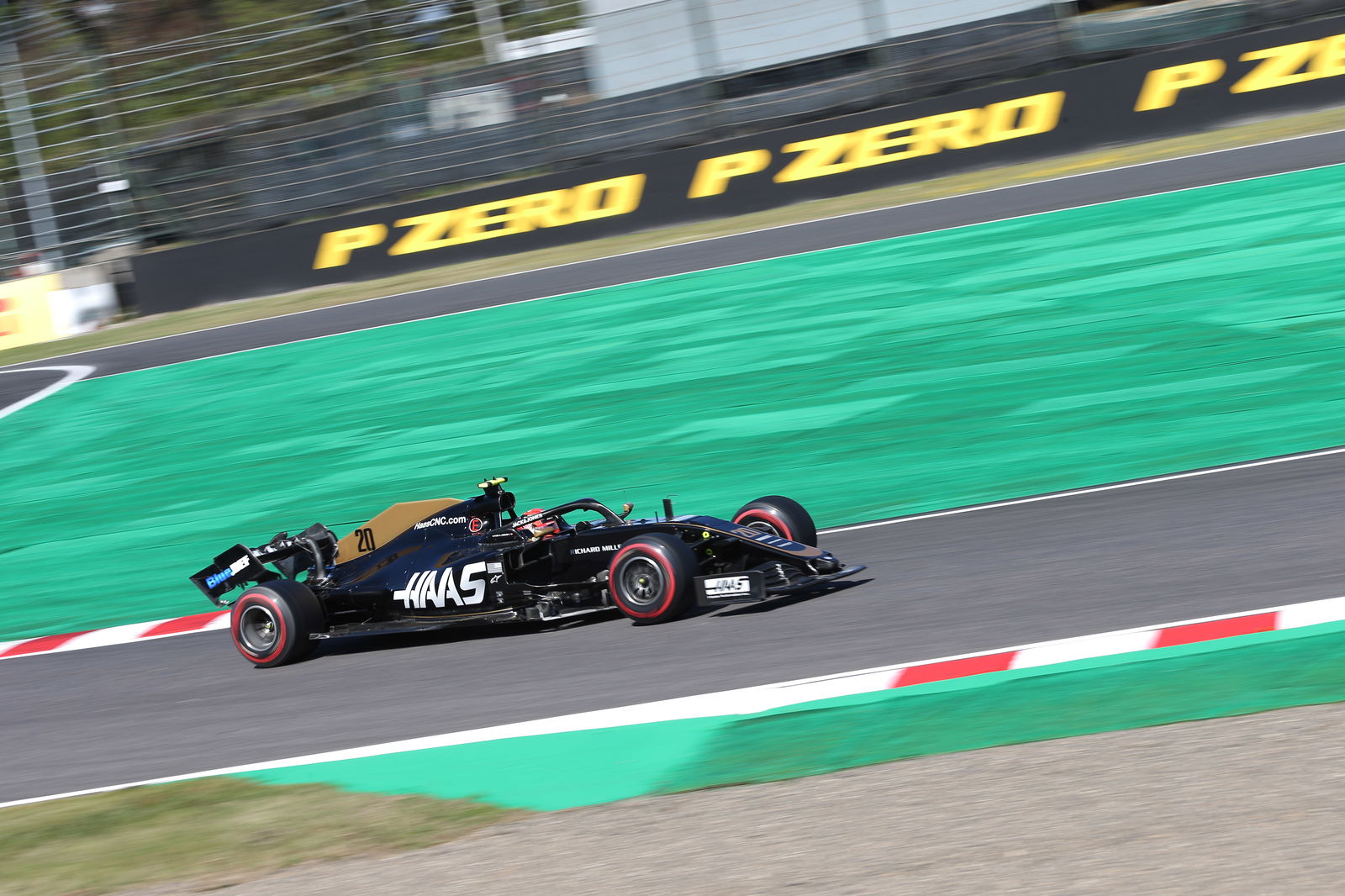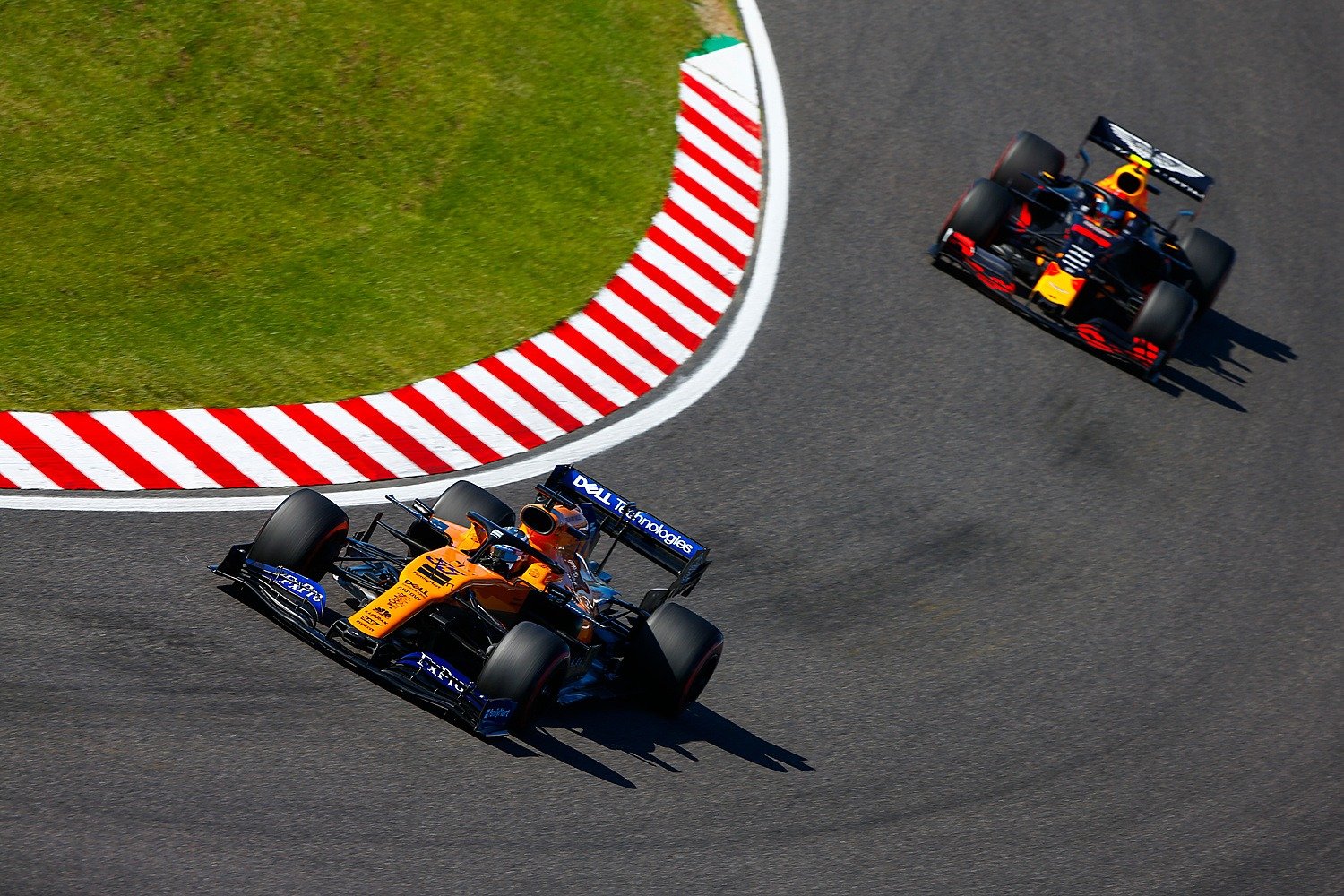Suzuka’s ‘super Sunday’ offers F1 refreshing change it can learn from
The Saturday evening of any grand prix weekend is usually a late one at the track for journalists.

The Saturday evening of any grand prix weekend is usually a late one at the track for journalists.
Yet at 10pm on Saturday at Suzuka, I found myself sat in an American bar, drinking Asahi beer, watching a subtitled version of A Star Is Born with some friends, having watched Ireland’s Rugby World Cup game against Samoa on TV earlier in the day. None of F1’s 500-or-so strong media corps had set foot in the circuit, which closed off as a result of the incoming Typhoon Hagibis. It had become an unscheduled day off, with officials making entirely the correct call to scrap running.
None of us knew for certain how it would hit, so we all planned for the possibility of being stuck in the hotel all day, getting survival kits comprising 7-11 snacks, playing cards and - in my case - Suntory whiskey.
Waking up to news that the typhoon was drifting east, ultimately leaving Suzuka and the surrounding area with just the high winds and heavy rain, left us feeling fortunate, particularly as footage emerged of how other areas of Japan had been affected.
It felt like a best-case scenario. No-one had got hurt. No massive clean-up effort was required at the track as once feared. Sunday would be hectic, squeezing qualifying and the race into the schedule, but at least we would be getting them.
And Suzuka’s ‘super Sunday’ delivered, offering a refreshing change that F1 could well learn from as it considers format changes for the future.
We know that heavy consideration is being given to reverse grid qualifying races at a handful events for 2020, showing that F1 is leaning towards breaking away from the existing weekend format that has gone largely unchanged since 2006 when knockout qualifying was introduced. It will no longer become uniform, with some events having different schedules to others.
So why not extend this further and place qualifying and the race on the same day in some places, creating a bumper day of on-track action for fans similar to the one we saw at Suzuka? It could create the possibility to cut back to three day weekends instead of the current four – placing media day on Friday, practice on Saturday, then qualifying and the race on Sunday – in turn reducing costs and the amount of time needed to do things.
The whole paddock is aware of the downsides of expanding the calendar beyond its existing 21 races next year, with 24 being mooted for 2021. Saving a day here and there may seem like a small move, but it would mean a lot to the paddock members whose days at home with family and friends are growing fewer.

Such a format would not work everywhere. Singapore is one race where qualifying and the race are best kept on separate days, avoiding the need to run qualifying in the daytime. The European races may also be difficult to schedule with the support categories to juggle. But for a race like the Australian Grand Prix, which starts at 5pm local time, running qualifying on the same day would be straightforward. Events in the Americas could also make the most of the later start on the European timezones, maximising view time.
If F1 wanted to be even more radical, it could even explore the possibility of double-header race weekends, similar to those used as some Formula E events. F1 could run FP1 and FP2 on a Friday as normal, then do qualifying and a race on both Saturday and Sunday. It would give events greater identity instead of all blending into one from a scheduling standpoint.
Lewis Hamilton has long advocated shaking up race weekend formats, and did so again at Suzuka, posting on Instagram that he thought it would be good to run qualifying and the race on the same day again in the future. His thoughts were echoed by both Kevin Magnussen and Nico Hulkenberg after the race.
“It’s been a really fun day, very interesting and very intense,” said Magnussen, whose mistake in qualifying almost became very costly given the close proximity to the race start. “I’d love to see this be the way forward in the future.”
Added Hulkenberg: “It’s a lot less hanging about, just get the job done. Now after 10 years, having that very same rhythm, I would appreciate a change of format very much. That’s from inside as a driver.
“You have to obviously balance out what fans want to see. They like the Friday probably. I think from inside Formula 1 it would be appreciated by a lot of people.”
But Lando Norris highlighted one of the big issues: the stress it would place on F1 team personnel.
“It’s tiring, stressful, and busy,” Norris said. “I don’t know. Maybe if it’s planned properly, or in a better way, more structured, then it could work.
“It’s nice getting it all out of the way in one go, doing qualifying and then going straight into the race, but it’s just tiring and stressful to do everything so quickly, not for myself but for the engineers and mechanics, everyone.
“To do it once or twice, or maybe a few more times, it’s not the end of the world. I thought it was quite fun just to do it and not have to wait one day and hours and doing loads of media and interviews, just getting it all done. It’s quite good.”

The revised weekend schedule meant that while the teams got Saturday off, the engineers had to be in for the end of curfew at 5am on Sunday morning. It would be a big, big ask to make that a regular occurrence, even with the promise of fewer whole days at the circuit and away from home.
F1 has said it is willing to experiment with formats in the future - but it took a typhoon to put a fresh idea to the test properly for the first time under Liberty’s stewardship.
How the sport learns from its Suzuka super Sunday and what actions follow as a result will be a good indicator of the level of change we can expect moving forward.

